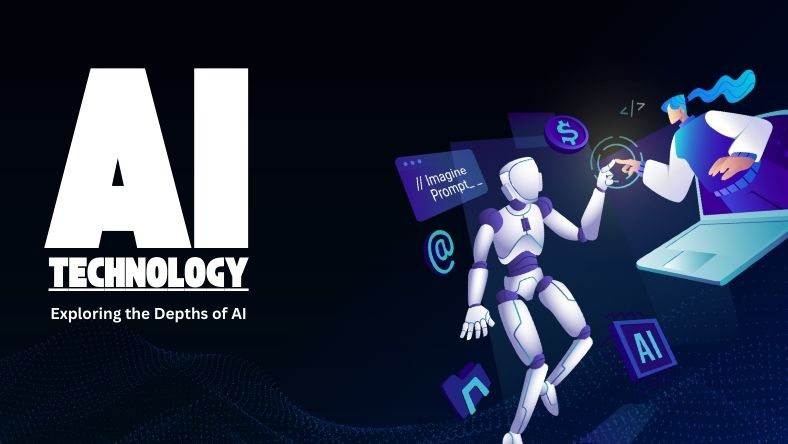Artificial Intelligence (AI)

Contact Form
Overview
Students Prerequisites
Course Curriculum
Duration of the Course
Instructor Profile
Overview
Artificial Intelligence (AI) provides advanced technologies that enable machines to mimic human intelligence. AI encompasses machine learning, natural language processing, computer vision, and robotics. It automates tasks, enhances decision-making, and drives innovation across industries. AI systems are built on large datasets and algorithms, offering security and scalability for various applications globally.
Students Prerequisites
- A fundamental understanding of algorithms, mathematics (especially linear algebra and statistics), and data structures is helpful.
- Familiarity with basic computer operations and an interest in data analysis and problem-solving will enhance learning in Artificial Intelligence (AI).
Course Curriculum
Module 1: Introduction to Artificial Intelligence
- What is AI?
- Definition and history of Artificial Intelligence.
- AI vs. Machine Learning (ML) vs. Deep Learning (DL).
- Applications of AI in various industries (Healthcare, Finance, Retail, etc.).
- Types of AI
- Narrow AI, General AI, and Superintelligent AI.
- Reactive Machines, Limited Memory, Theory of Mind, and Self-Aware AI.
- Key AI Terminologies
- Agents, environments, rewards, actions, and policies.
- Key concepts: Algorithms, neural networks, and heuristics.
Module 2: Mathematics for AI
- Linear Algebra
- Vectors, matrices, and tensor operations.
- Eigenvalues, eigenvectors, and matrix factorization.
- Probability and Statistics
- Basics of probability (Bayes’ theorem, distributions).
- Statistical measures (mean, variance, standard deviation).
- Markov models and Hidden Markov Models.
- Calculus
- Derivatives, partial derivatives, and gradients.
- Optimization techniques (gradient descent and its variants).
- Discrete Mathematics
- Graph theory and logic relevant to AI algorithms.
Module 3: Machine Learning Fundamentals
- Introduction to Machine Learning
- Definition and types of Machine Learning: Supervised, Unsupervised, and Reinforcement Learning.
- Key ML algorithms and when to use them.
- Supervised Learning
- Linear regression, logistic regression.
- Decision trees, random forests, and support vector machines (SVM).
- Unsupervised Learning
- K-means clustering, hierarchical clustering.
- Principal Component Analysis (PCA) and dimensionality reduction.
- Reinforcement Learning
- Concepts of rewards and policies.
- Q-learning and Deep Q Networks.
Module 4: Deep Learning
- Introduction to Neural Networks
- Structure of an artificial neuron.
- Activation functions and forward/backward propagation.
- Building Neural Networks
- Types of neural networks: Feedforward, Recurrent (RNN), and Convolutional (CNN).
- Frameworks: TensorFlow and PyTorch basics.
- Deep Learning Architectures
- CNN for image processing.
- RNN for sequence data and natural language processing (NLP).
- Transformers and Attention Mechanisms.
- Advanced Topics
- Generative Adversarial Networks (GANs).
- Transfer learning and pre-trained models.
Module 5: Natural Language Processing (NLP)
- Basics of NLP
- Tokenization, stemming, and lemmatization.
- Bag of Words (BoW) and Term Frequency-Inverse Document Frequency (TF-IDF).
- Advanced NLP Techniques
- Word embeddings (Word2Vec, GloVe).
- Sequence-to-sequence models.
- Transformers and BERT (Bidirectional Encoder Representations from Transformers).
- Applications of NLP
- Sentiment analysis, chatbots, and machine translation.
- Speech recognition and text summarization.
Module 6: Computer Vision
- Basics of Computer Vision
- Image processing techniques: Filtering, edge detection, and histograms.
- Feature extraction: SIFT, SURF, and ORB.
- Deep Learning for Vision
- Convolutional Neural Networks (CNN) architecture.
- Object detection models: YOLO, SSD, and Faster R-CNN.
- Applications of Computer Vision
- Image classification, object detection, and facial recognition.
- Autonomous vehicles and medical imaging.
Module 7: AI Tools and Frameworks
- Programming Languages
- Python for AI: Libraries and tools (NumPy, pandas, scikit-learn, etc.).
- R for statistical analysis.
- AI Frameworks
- TensorFlow, PyTorch, Keras.
- OpenCV for computer vision tasks.
- Cloud AI Platforms
- Google AI, AWS AI, and Microsoft Azure AI services.
Module 8: Ethical and Responsible AI
- AI Ethics
- Bias in AI and its mitigation.
- Fairness, accountability, and transparency in AI systems.
- Data Privacy
- GDPR and other data privacy regulations.
- Handling sensitive and personal data responsibly.
- AI in Society
- The impact of AI on jobs and industries.
- Ensuring inclusivity and addressing societal concerns.
Module 9: Real-World AI Applications
- AI in Healthcare
- Diagnosis, drug discovery, and personalized medicine.
- AI in medical imaging and robotics.
- AI in Finance
- Fraud detection, algorithmic trading, and risk assessment.
- AI in Retail
- Recommendation systems and inventory management.
- Chatbots and customer service automation.
- AI in Autonomous Systems
- Self-driving cars and drones.
- AI in manufacturing and robotics.
Module 10: AI Project Development
- Problem Identification
- Defining the problem statement.
- Data collection and preprocessing.
- Model Development
- Choosing the right algorithms and architectures.
- Training and validating models.
- Deployment
- Deploying AI models to production.
- Monitoring and maintaining AI systems.
- Case Studies
- Analyzing successful AI implementations.
Module 11: Capstone Project
- End-to-End AI Project
- Identify a real-world problem and create an AI-based solution.
- Include data collection, preprocessing, model building, and deployment.
- Create a presentation showcasing the solution and results.
Duration of the Course
40 Days (also available fast track course with short term duration)
- Flexible Schedules
- Live Online Training
Instructor Profile
- Training by highly experienced and certified professionals
- No slideshow (PPT) training, fully Hand-on training
- Interactive session with interview QA’s
- Real-time projects scenarios & Certification Help
- 24 X 7 Support
